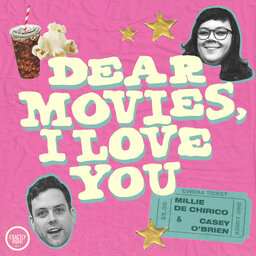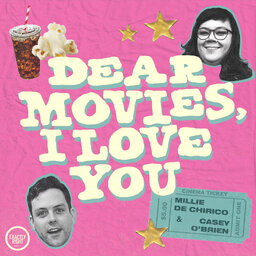Millie and Danielle discuss A CLOCKWORK ORANGE (1971) and ORDINARY PEOPLE (1980), they have a lengthy convo on how they like to talk about art, Millie tells a story about watching forbidden films at the neighbor’s house, and they heap praise upon laconic oaf himself, Donald McNichol Sutherland.
To see a full ISWYD movie list, check out our Letterboxd here:
https://letterboxd.com/isawwhatyoudid/films/diary/
 Dear Movies, I Love You
Dear Movies, I Love You


